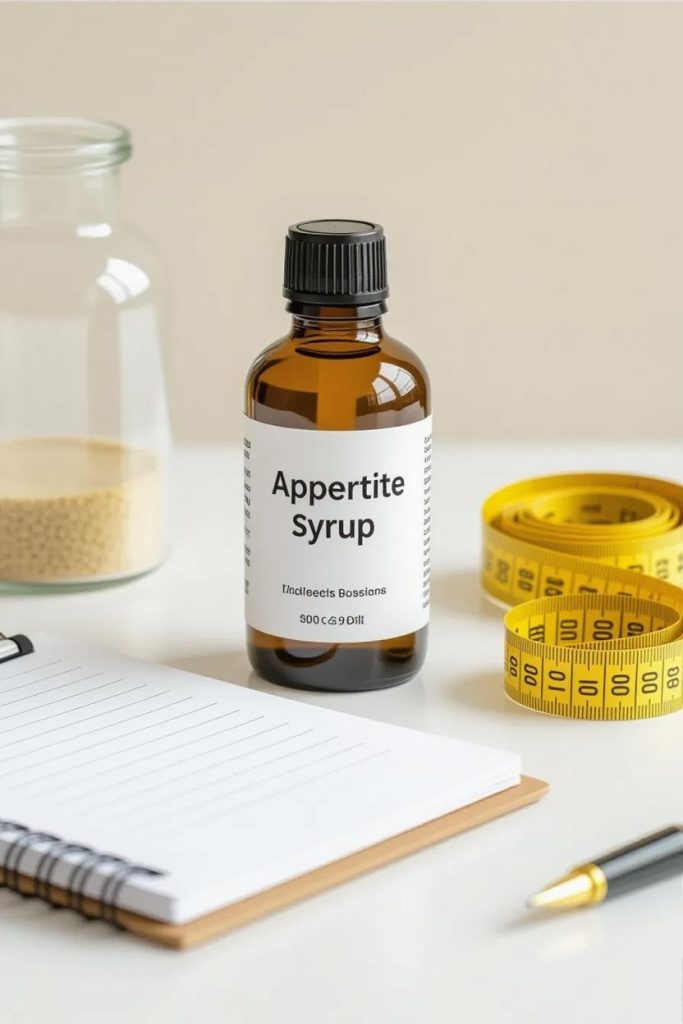
Studies show that people are turning to drinks rather than meals to help them reach their nutrition goals. Smoothies, milkshakes, and fortified beverages are everywhere, from coffee shops to health food stores. Among these choices, appetite syrups stand out as a different kind of drinkable option. They’re not simply sweet flavors in a bottle. They are designed to influence hunger itself, which makes them a unique topic within the food and drink conversation.
Products like appetite syrup for weight gain are often marketed alongside calorie-rich drinks, but their purpose goes deeper. These syrups are typically pharmaceutical-style formulations that contain antihistamines, vitamins, or other compounds that stimulate appetite. They may taste fruity, minty, or herbal, but their role is not just to please the palate. They’re designed to prompt the body to feel hungry more often, which can lead to increased food intake over time. This makes them very different from a simple protein shake or energy drink.
What Are Appetite Syrups?
Appetite syrups are liquid supplements created to increase hunger. Many of them use ingredients such as cyproheptadine, an antihistamine known for its side effect of stimulating appetite. Some are fortified with vitamins to improve overall nutrient intake. They often come in bright bottles with labels promising weight gain, curves, or increased energy. Flavors can range from tropical fruit to mild herbal blends, making them more appealing to drink. Yet behind the taste lies a product designed to act on your body’s signals, not just your taste buds.
How They Differ from Nutritional Drinks
It’s easy to confuse appetite syrups with calorie-dense shakes or smoothies. Nutritional drinks like shakes, smoothies, or fortified milks provide energy and nutrients directly. They help you gain weight because they are high in calories. Appetite syrups, on the other hand, do not necessarily provide calories themselves. Instead, they work by making you feel hungrier, which can lead you to eat more food. This distinction matters because it changes how they fit into your diet. One is a food-based solution, the other is more like a medicine.
Why This Matters in the Food & Drink Space
Food and drink culture celebrates variety, flavor, and experience, but also wellness. When something is packaged like a drink yet functions like a drug, it can confuse consumers. Many assume that because it comes in a bottle and tastes sweet, it’s just another beverage option. This assumption can lead people to use appetite syrups without understanding their effects, or without medical guidance. That’s why conversations about them belong in the food and drink space — to help people make informed choices.
Tips for Healthy Weight Gain through Food and Drink
Before trying an appetite syrup, it’s wise to explore natural ways to gain weight. Adding calorie-dense ingredients to your meals and drinks is often safer and more sustainable. Here are some ideas:
- Blend nutrient-rich smoothies. Combine full-fat yogurt, nut butters, bananas, and honey for a calorie-packed drink.
- Include healthy fats in meals. Olive oil, avocado, and seeds add energy without large portions.
- Use fortified milks or plant-based drinks. These can give an extra boost of calories and nutrients.
- Snack smart. Trail mix, dried fruits, and cheese between meals help raise total intake.
These choices not only supply calories but also provide vitamins, minerals, and fiber. They help the body gain weight in a balanced way, which is especially important for people recovering from illness, athletes building muscle, or students juggling busy schedules. Using drinks and foods first also gives you more control over what goes into your body compared to using pharmaceutical products.
When to Consider an Appetite Syrup
Sometimes natural approaches aren’t enough. People with medical conditions, low appetite due to medication, or significant underweight issues may find appetite syrups helpful under professional supervision. In these cases, doctors can recommend safe dosages and monitor side effects. It’s important to remember that appetite syrups aren’t magic. They won’t automatically build healthy weight without proper food choices. They work best when combined with balanced, calorie-dense meals.
Understanding the Risks
Because many appetite syrups include antihistamines, they can cause drowsiness or other side effects. Some may interact with medications. Others may not be suitable for children or people with certain health conditions. Labels can be misleading or incomplete, especially on products purchased online. This makes it essential to approach these syrups with the same care you’d give any pharmaceutical product, even if it comes in a brightly colored bottle with a sweet taste.
READ ALSO: Discover Food Options for a Healthier You
Final Thoughts
Appetite syrups are an interesting part of the food and drink conversation because they blur the line between supplement and medicine. Unlike smoothies or shakes, they don’t provide calories directly. They influence your appetite, which means they should be used with caution and only when necessary. For most people, focusing on calorie-rich, nutrient-dense foods and drinks is a safer first step. However, for those who truly need medical help with appetite, products like appetite syrup for weight gain can be useful under guidance. Understanding the difference helps people sip smartly and meet their goals without risking their health.



